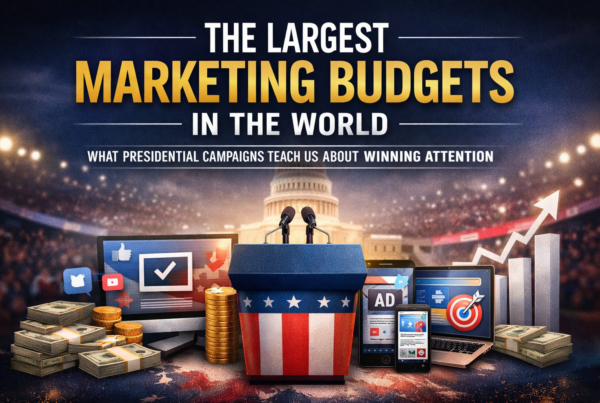Search Engine Marketing Approach
Most agencies approach search engine marketing campaigns as though they have separate goals – but the reality of the subject is, the end result is always the same – acquire visibility, traffic, and sales from search engine users. I created this graphic below to illustrate this basic concept –
- Google Ads: Paying to rank your website for keywords in search engine results
- SEO: Optimizing your website, and content with the goal of getting your website ranked for keywords in search engine results.
- Listings Management (or Local SEO – depending on the agency): Citation building and optimization to get your business ranked for keywords in the Maps portion of the search engine result page.
The goal of all 3 strategies is the same: Get your brand found in search engine results. Now, I get it, not all businesses can afford all 3 strategies – and many times, agencies need to pick and choose which strategy is right for them.
Suggestions on how to roll out a Search Engine Campaign on a Budget
So you can’t afford the Cadillac Search Engine Marketing Plan, what now? Well, there are plenty of combinations of the 3 programs listed above, but these are the most viable options as we see it.
Option 1: The Foundation (The Kia Rio Plan)
This option consists of running a citation campaign to create, update, and/or optimize your business’s information on places like Google, Bing, Apple Maps, and Alexa. Additionally, any search engine campaign absolutely needs a website that has the technical factors taken care of, and is properly optimized for Search Engines. This option doesn’t include a fancy ongoing content creation strategy or re-optimization of old content, but if you’re a local business whose competition isn’t entirely cutthroat and fierce, this may be a good option for you.
Pros:
- It’s cheap! And the ROI is damn good (at least for a while)
- You’ll know that at the very least, your foundation is set up for success, your information online is accurate, available and optimized.
Cons:
- Without an active and ongoing strategy, your rankings will almost certainly dwindle as your website and content become outdated, and your risk the threat of the competition taking market share away while you “coast”
Option 2: The Ongoing SEO Plan (The Honda Accord Plan)
Option 2 is essentially everything listed in Option 1 but includes more of a hands-on approach. This approach includes ongoing content publishing (which could include blogs, landing pages, infographics or video – depending on the budget), active monitoring of any errors/warnings that may arise, and re-optimization of old content – that could be crushing it, and you don’t even know it. This option ensures you remain competitive in the SEO space and increase your chances of keeping your current keyword rank status, while expanding your brands visibility for a wider variety of keywords that your target audience is searching for when they are in “buy mode”.
Pros:
- You’ll have a greater opportunity to keep your current keyword rankings.
- You’ll expand your brand visibility in search engines for new keywords.
- You’ll generate content that can be used for other campaigns – like Social Media for instance.
- Higher longterm ROI. Your results will compound as you rank for new keywords, and rank higher for competitive keywords. Plus – if you decide to discontinue the strategy, you’ll still generate results long after your last invoice. Unlike paid media, SEO doesn’t just “stop” when you stop a program (unless your SEO agency is a scam artist).
Cons
- More expensive than option 1.
- Lower ROI in the beginning. SEO results don’t happen overnight, and creating high-quality content is oftentimes can be expensive (and should be – if it’s good)
Option 3: The Hybrid Approach ( Insert Cool Hybrid – Ford Lighting? Yeah. The Ford Lighting F150 Plan)
This option includes everything in option 1 and 2, but with a pay-to-promote twist. This strategy includes paying for keyword rankings while you’re waiting for the SEO campaign to take hold. Here’s a cool chart to help you visualize the concept:
Pros:
- Higher visibility of content created for the SEO campaign, now promoted with a paid media spend. IE – buying the target keywords for your new blogs or landing pages while they index.
- Faster results.
- Longevity of SEO and long-term compounding results
Cons:
- More expensive – especially in the beginning. PPC still takes a month or two to garner results
This strategy is for the medium size business that has a dedicated marketing budget. This concept is also beneficial to businesses whose clientele have a higher lifetime value, and can see recurring revenue from the higher cost of acquisition.
What Search Engine Marketing Plan do we recommend?
When it comes to planning and recommendations, we always consider budget first. If you don’t have the budget, to compete in your market space, paid media is not right for you. There’s no sense in paying for campaign creation/management if the ad budget will dry up in the first hour of the day (or the first week of the month). We also need to consider how aggressive you want or need to be, and your timeline. If your business’s busy season is in the Summer, and we’re onboarding your strategy in June, we’ll need to implement some sort of paid campaign to ensure we get fast results. Conversely, if it’s September and your busy season just ended – then we have more time to create a strategy that will be well set up by the following year – in which case, we won’t need to rely on paid tactics nearly as much in the off-season.
Bottom line – there are many digital marketing strategies out there, Search Engine Marketing is just one of them. This is not the silver bullet for your business, but we’ve seen the results and know the ROI for these strategies is typically stronger compared to most other campaigns. When working with your marketing company, or colleague, remember that your Search Engine Marketing strategy is a recipe with the same overarching goal. Each ingredient has its own purpose and should be considered and addressed in the grand scheme of your online marketing strategy.
We hope you found this article to be helpful and insightful! As always, feel free to drop us a line if you want to talk shop! Have a wonderful day.








